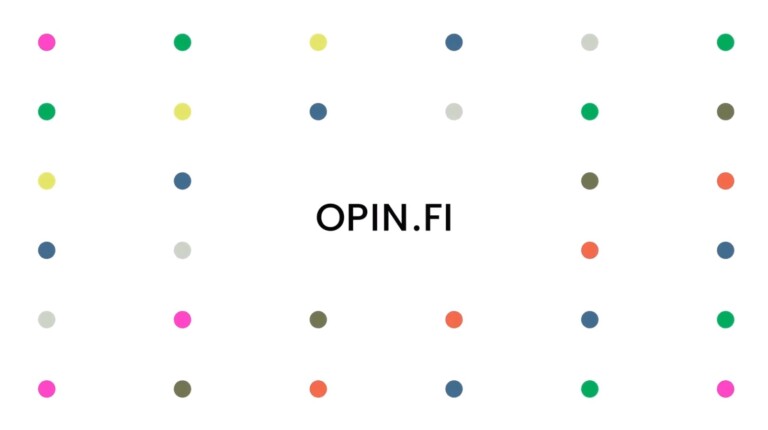Based on interviews, learners want to manage the use of their data but also get inspiring surprises.
What features do learners want from the Opin.fi service shared by higher education institutions? The Digivision 2030 project seeks answers to this question by interviewing a large group of learners. The interviewees include people of different ages, from different parts of Finland and from various cultural backgrounds.
The aim has been to find interviewees who are interested in developing their competence – and who might have already considered or completed open higher education studies. Mapping their wishes and needs ensures that Opin.fi, which will be launched in the future, serves continuous learners as well as possible.
“When higher education institutions agreed on the objectives of Digivision 2030, the starting point was that the learner’s benefit is always at the centre of development,” summarises Project Manager Heini-Maari Kemppainen.
Interviews confirm that Digivision tackles a real problem
Since autumn 2021, around 60 interviews have been conducted with learners. They have shown that the Opin.fi service shared by higher education institutions tackles a relevant problem.
“Continuous learners spend a lot of time comparing the offerings of different higher education institutions and making notes of available courses,” Kemppainen explains.
Through the interviews, the participants have been able to share their views on preliminary ideas or the functionality of features in the Opin.fi service, for example. According to Kemppainen, the interviews have shown that learners want to know, for example, how much time the studies take or whether they can study only on weekends.
From career changers to continuous learners
Learner insights have been gathered by service design professionals Jonna Saarinen and Panu Puukari from Solita Oy, a partner in Digivision. Interviewees are searched in both LinkedIn and Solita’s Kokemusagentit (‘experience agents’) group on Facebook.
“The interviews help us identify which activities or contents are useful to the learner. For example, we have noticed that it’s important to be able to pick studies as favourites. That way, you don’t have to make the registration decision right away,” Saarinen explains.
The Opin.fi service must also meet the needs of different learners. Some want to complete small studies alongside work, while others are aiming for a career change and want to complete extensive modules. Some already have a specific course in mind, while others are only exploring the study offering.
“We want to take very different groups into account in the design of the digital service,” Puukari says.
Learners want to manage their data but also be surprised
The interviews are also an opportunity for the learner to give their opinion on the functionality of the user interface, the understandability of the terminology, and what kind of filters would be needed on the search results page, for example. Based on the interviews, learners give great weight to the experiences of peers and the fact that the same information does not need to be entered in many different places. In addition, they want to choose which data the service uses as a basis for recommendations. For instance, if they have previously studied a certain field, they might not want to see it among the recommendations.
“Learners also appreciate the opportunity to get inspired and surprised,” Saarinen says.
It is essential that the learner is able to make choices that suit their life situation. If they only have the energy to listen to a couple of podcasts, you do not want them to select modules worth dozens of credits by accident.
“A high-quality choice also benefits the higher education institution, as they want students to finish their studies,” Puukari says.
Learners’ perspective is taken into account in every step
Digivision uses the information collected from the interviews in every step of the development of the Opin.fi service. For example, higher education institutions rely on it to determine which functions are offered to the logged-in user.
“Learner insight carries you from an early idea to a very detailed level of planning,” Kemppainen says.
The beta version of the Opin.fi service will be introduced by the first higher education institutions at the end of 2024. That is when new kind of learner insight is needed, and the interviews will continue in the future. According to Kemppainen, learner-orientation has become an even stronger principle that guides the activities of higher education institutions, and Digivision has contributed to that.
“Higher education institutions have been very eager to learn more about this.”
